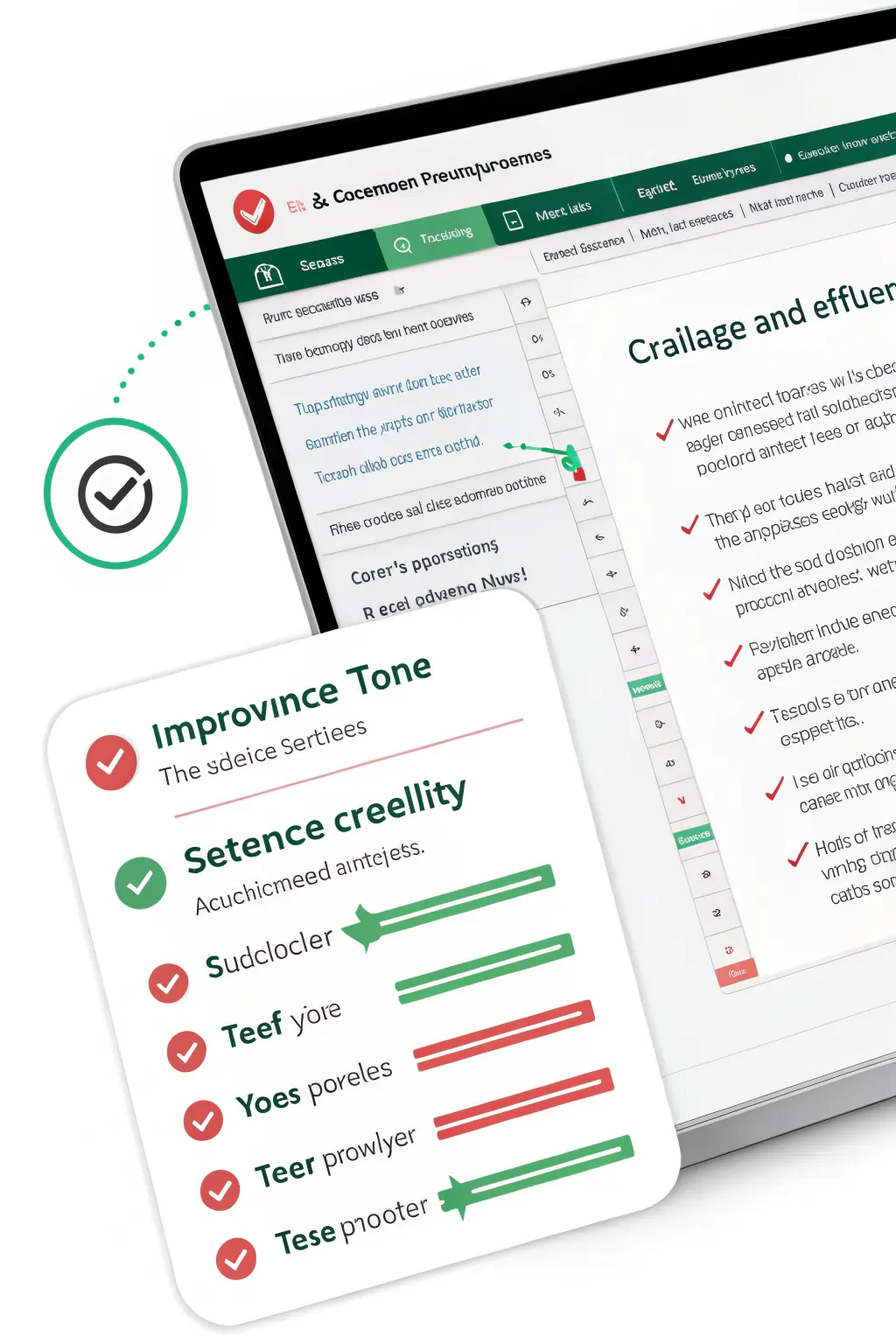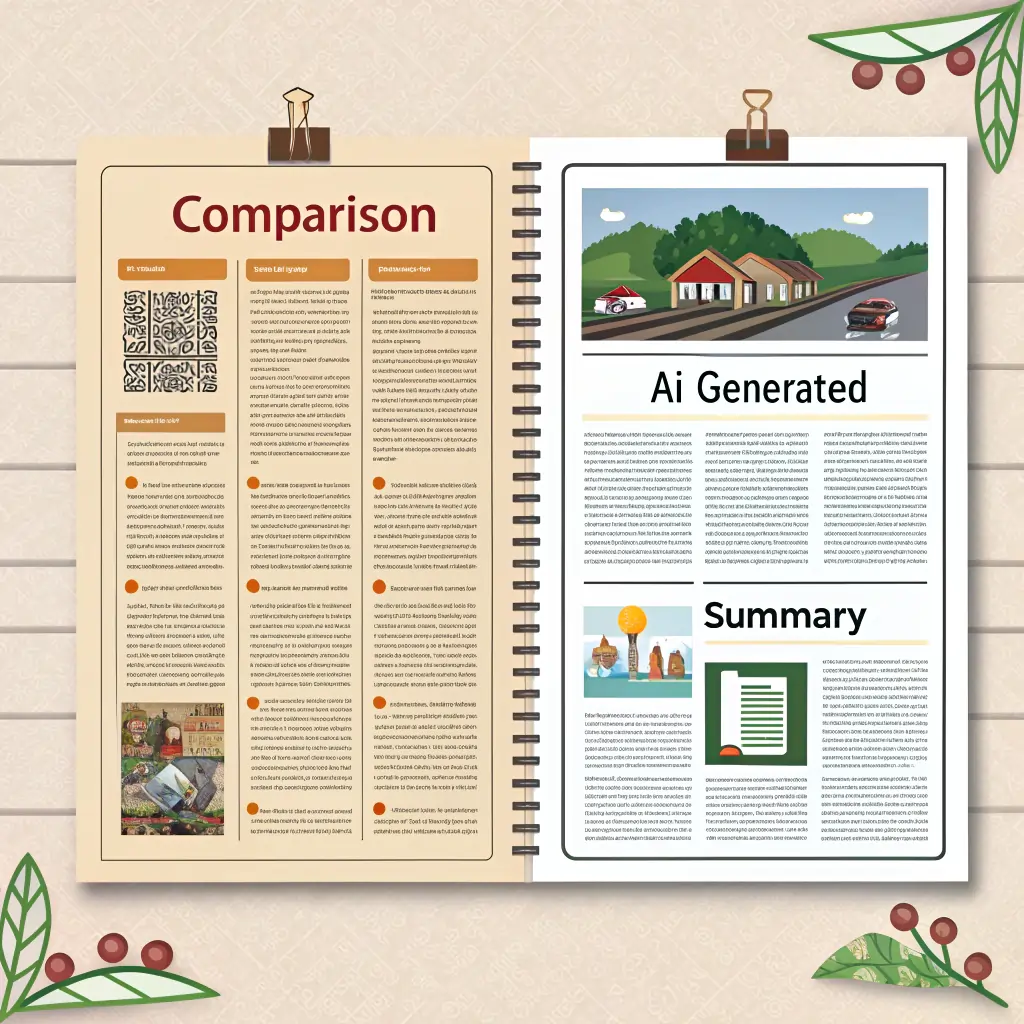AI Writing Tools: the Best Ultimate Guide for Writers

Have you ever wondered how some writers manage to create fantastic content at lightning speed? The secret might not just be talent—but the tools they use. AI writing tools have become the hidden weapon of brilliant writers everywhere. From generating blog posts to checking grammar and summarizing articles, this guide will take you inside the world of AI tools that are changing how we write. Ready to discover how AI is rewriting the rules of writing?
What Are AI Writing Tools and Why Writers Use Them
AI writing tools are software applications powered by artificial intelligence that assist with generating, editing, rewriting, or polishing written content. From casual bloggers to seasoned authors, more writers are turning to AI not just for speed but for quality and consistency. These tools can brainstorm blog topics, fix grammar, rephrase sentences, and even write entire stories.
Why do writers use them? Because writing can be time-consuming, mentally draining, and often inconsistent. AI helps eliminate writer’s block, accelerate content production, and ensure error-free grammar and style. For freelance writers and content marketers, AI tools also serve as powerful productivity boosters.
The Rise of AI in Content Creation: A Quick Look
Over the past decade, AI has transformed from a tech buzzword to a daily utility. In writing, its role has shifted from basic autocorrect tools to fully autonomous content generation. Thanks to deep learning models and natural language processing, modern AI can now mimic human tone, style, and structure more accurately than ever before.
What began as spellcheck evolved into competent editors and now into entire article generators. Whether you’re drafting a technical blog, rewriting an ad copy, or summarizing a research paper, there’s likely an AI tool already built for that.
Blog Post Generators: Write Smarter, Not Harder

How They Work and What They Can Produce
Blog post generators utilize AI algorithms trained on extensive datasets to comprehend writing patterns, tone, formatting, and structure. Once you provide a prompt or topic, these tools generate titles, outlines, or entire articles. The results may not be final-draft-ready, but they’re often 80% there — a solid base to build on.
They can generate how-to guides, listicles, tutorials, product descriptions, or niche content with surprising coherence. Some advanced tools also support keyword optimization and tone adjustments.
Best Blog Post Generators to Try Today
- Jasper AI – Known for long-form content and SEO integration
- Writesonic – Versatile with marketing-focused outputs
- Copy.ai – Great for brainstorming and short-form copy
- ChatGPT – Ideal for idea generation and creative drafts
Pros and Limitations of Blog AI Generators
Pros:
- Massive time savings for content marketers
- Supports SEO keyword usage and formatting
- Eliminates writer’s block with fast ideation
Limitations:
- May lack originality or deep insight
- Needs fact-checking, especially on current topics
- Can sound robotic if overused or left unedited
Article Rewriters: Rephrase Without Losing Meaning
When to Use an Article Rewriter
Article rewriters are ideal when you want to reword existing content without changing its core message. Bloggers often use them to refresh outdated articles, convert transcripts into polished content, or repurpose content across multiple platforms.
They’re also helpful in overcoming duplication issues, localizing tone for different audiences, or simplifying complex text for readability.
Top AI Tools for Rewriting and Paraphrasing
- QuillBot – A favorite for accurate paraphrasing with multiple rewriting modes
- Paraphraser.io – Simple and direct, great for students and bloggers
- Wordtune – Focuses on improving fluency and tone
Ethical Use: Avoiding Plagiarism with AI
Using rewriters responsibly is key. While AI can help rephrase text, it shouldn’t be a shortcut to duplicate content or avoid giving credit. Ethical writers always verify content originality using tools like Copyscape or Turnitin and ensure sources are cited properly. Remember: AI helps, but you are the editor.
Grammar & Style Checkers: More Than Just Spelling

Key Features That Go Beyond Basic Checks
Modern grammar checkers do more than just flag typos. With the help of AI, these tools now analyze sentence structure, suggest tone adjustments, highlight passive voice, and offer clarity improvements. They help writers sound more professional and confident by catching subtle mistakes and enhancing overall style.
Some even tailor suggestions based on audience type—academic, casual, business, or creative—making them a must-have for writers in all domains.
Top Tools: Grammarly, ProWritingAid, and Beyond
- Grammarly – A comprehensive tool for grammar, tone, clarity, and even plagiarism detection
- ProWritingAid – Combines grammar checking with in-depth writing analytics and reports
- Slick Write – Fast and lightweight, good for quick grammar scans
AI-Powered Style Suggestions: Good or Too Much?
While helpful, AI-driven suggestions should be reviewed with a human eye. Over-editing can strip your writing of personality. Writers should use style suggestions as guidance, not absolute rules. Balance is key: keep your voice, but polish your prose.
Content Summarizers: Less Text, More Clarity

When Summarization Saves the Day
Long-form content can be overwhelming. That’s where AI summarizers shine. These tools distill articles, reports, or even PDFs into key points or brief overviews. They’re perfect for busy professionals, students, or anyone looking for the “TL;DR” version of complex material.
They’re also useful for content creators needing to generate quick summaries for newsletters, intros, or social media captions.
Best Summarizer Tools for Articles & Documents
- SMMRY – Minimalist tool that reduces text based on keyword density
- Resoomer – Best for academic or argumentative texts
- Scholarcy – Summarizes research papers with citations and bullet points
Manual vs AI Summarizing: Accuracy Test
Manual summaries offer more nuance but are time-consuming. AI summarizers are instant, but sometimes miss subtle context or tone. The best approach? Let AI create the first draft of the summary, then refine it with a human touch.
Story Generators: AI That Thinks Creatively

Can AI Create Meaningful Fiction?
It might surprise you, but yes—AI can tell stories. From short tales to complex plots, story generators use machine learning models trained on books, scripts, and dialogues. While they don’t “feel” emotions, they can simulate narrative flow, character development, and plot twists with impressive accuracy.
Top Story Generator Platforms Writers Love
- NovelAI – Tailored for fiction writing, supports character and world-building
- Sudowrite – Focused on creative fiction, integrates directly into your workflow
- AI Dungeon – Interactive storytelling, ideal for fantasy and RPG-style adventures
Prompt Engineering: Getting Better AI Stories
Prompt engineering means writing better input to get better output. For example, instead of saying “write a fantasy story,” try “write a 500-word fantasy story about a lonely dragon who discovers music.” Clear, specific prompts help AI deliver richer and more relevant stories.
How to Choose the Right AI Tool for Your Writing Needs
Free vs Paid Tools: What’s Worth Investing In?
Many AI tools offer free versions with basic functionality. These are great for occasional use. However, if you write professionally or daily, premium tools unlock advanced features, deeper customization, and higher accuracy. Think of it as investing in your writing efficiency.
Choosing Based on Writing Goals: Speed, Quality, or Creativity
Different tools excel at different things. If your goal is speed and volume, blog generators are key. For clarity and polish, grammar checkers shine. If you want inspiration or narrative flow, story generators will help. Identify your writing bottleneck—and match it with the right AI solution.
The Future of AI Writing Tools: What’s Coming Next
AI writing tools are evolving rapidly. In the near future, we can expect deeper integration with voice interfaces, emotion-aware writing suggestions, and multilingual mastery. Tools will become more collaborative—offering real-time assistance as you write, and adapting to your personal style over time.
Some platforms are even experimenting with “writer-AI partnerships” where the AI co-writes creatively with the human, offering alternatives and rewrites in real time. As AI continues to learn, it may become more of a writing coach than a mere assistant.
Pros and Cons of Relying on AI for Writing
Pros:
- Speeds up the writing process significantly
- Improves grammar, structure, and clarity
- Helps generate new ideas and overcome creative blocks
- Supports multiple formats—blogs, emails, stories, summaries, etc.
Cons:
- May lack emotional depth or human nuance
- Requires careful fact-checking and editing
- Overreliance can weaken personal writing skills
- Some tools have ethical concerns around originality
Ultimately, AI writing tools should serve as an extension of your creativity—not a replacement for it.
Real-World Use Cases: Writers Who Benefit from AI Daily
Freelance Writers: Meet tight deadlines with tools that draft outlines, rewrite paragraphs, and correct grammar fast. AI becomes a virtual assistant that never sleeps.
Content Marketers: Use AI to produce SEO-optimized articles, social media captions, and email sequences in bulk—saving both time and budget.
Students and Researchers: Summarize academic texts, rephrase complex concepts, and double-check grammar before submission.
Authors and Novelists: Get unstuck with story prompts, character suggestions, or entire plot arcs generated by creative AI systems.
“AI won’t replace writers. But writers who use AI will replace those who don’t.”
Used wisely, AI becomes a powerful partner that enhances—not replaces—your voice, your vision, and your value as a writer.
Whether you’re a beginner blogger or a time-pressed professional, AI writing tools offer speed, quality, and creativity with every word you write. We’ve explored how they help generate, rewrite, polish, and even imagine stories. What’s next? Try them for yourself and start using the power of AI to elevate your writing. Are you ready to write faster and smarter?
We’d love to hear your thoughts! How has AI impacted your writing? Share your experience in the comments below and join the conversation.
